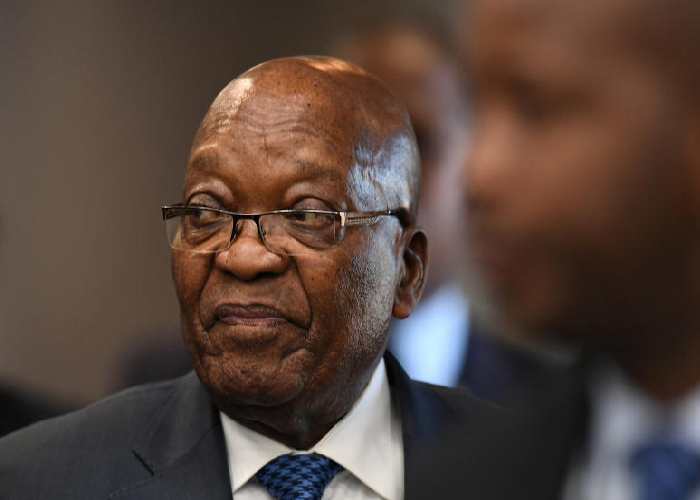×
The Standard e-Paper
Home To Bold Columnists

Former South African President Jacob Zuma appears before the Commission of Inquiry into State Capture in Johannesburg, South Africa, on July 16, 2019. [Reuters]
Former South African president Jacob Zuma lost a court bid on Friday, July 9 to overturn his arrest for contempt, days after turning himself in for a 15-month jail term in a case that has tested the post-Apartheid nation's rule of law.